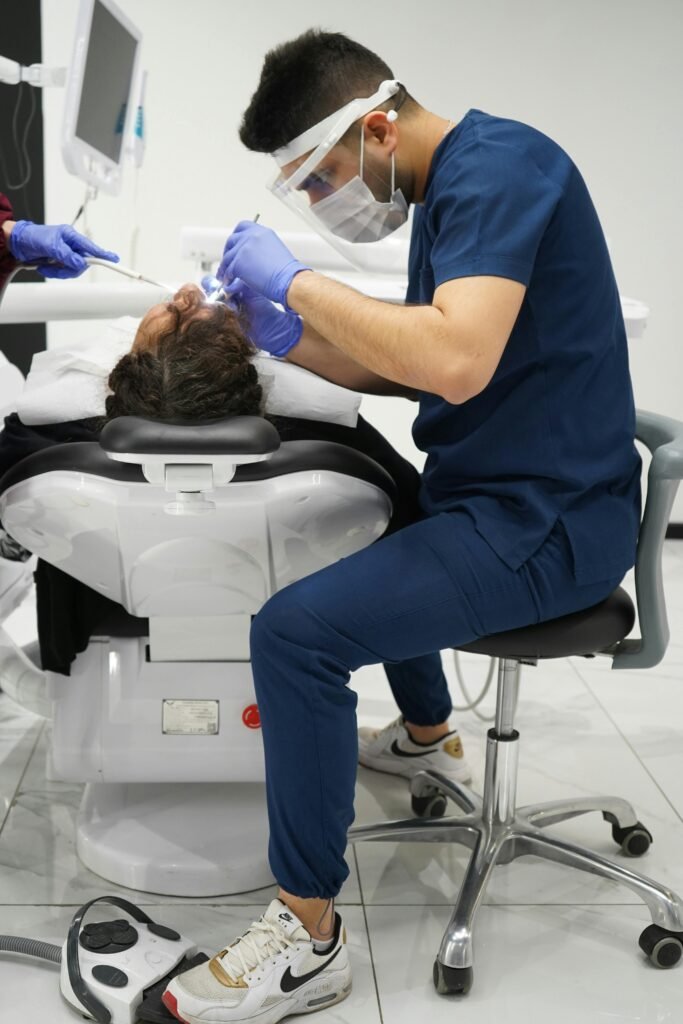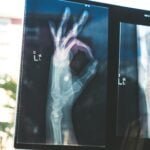
Are you or someone you know living with a lung condition? If so, you may be curious about the best practices for pulmonary rehabilitation. This article aims to provide you with valuable information and insights on the most effective techniques and strategies for improving lung function and overall quality of life. Whether you’re seeking guidance as a patient or looking to support a loved one, understanding these best practices can make a significant difference in managing and coping with a pulmonary condition. Let’s explore the key recommendations and expert advice for pulmonary rehabilitation together.
Patient Assessment
Medical History
When beginning pulmonary rehabilitation, a thorough medical history is essential. Your healthcare provider will review your past and present medical conditions, medications, surgeries, and any other relevant information. This helps in determining the most appropriate course of treatment and identifying any potential risks or contraindications. By understanding your medical history, healthcare professionals can develop a tailored plan that takes into account your specific needs and goals.
Physical Examination
A comprehensive physical examination will be conducted by your healthcare provider to assess your overall health status. This examination may include measurements such as height, weight, blood pressure, and oxygen saturation levels. Additionally, your healthcare provider may assess your lung function through spirometry or other pulmonary function tests. This evaluation provides crucial baseline data and helps to determine your current physical capabilities, which will guide the development of your rehabilitation plan.
Functional Assessment
In addition to the medical history and physical examination, a functional assessment is an integral part of the patient assessment process. This assessment evaluates your ability to perform activities of daily living and assesses any limitations or functional impairments that may impact your daily life. By understanding your functional abilities, healthcare professionals can develop specific interventions to improve your functional capacity and overall quality of life.
Exercise Training
Cardiorespiratory Training
Cardiorespiratory training plays a central role in pulmonary rehabilitation programs. This type of exercise aims to improve your cardiovascular and respiratory endurance. By engaging in activities that increase heart rate and breathing rate, you can enhance your lung capacity, improve oxygen uptake, and enhance overall endurance. This can be achieved through exercises such as walking, stationary cycling, swimming, or low-impact aerobics. Your healthcare provider will tailor your cardiorespiratory training to your individual needs and gradually increase the intensity as you progress.
Strength Training
Incorporating strength training exercises into your pulmonary rehabilitation program can help improve your muscle strength and enhance your overall endurance. By targeting specific muscle groups, strength training exercises can improve your ability to perform daily activities with less effort. These exercises might include resistance training using weights, resistance bands, or weight machines. Your healthcare provider will guide you through proper form and technique to ensure safety and effectiveness.
Endurance Training
Endurance training focuses on improving your ability to sustain activity for longer periods without fatigue. It involves activities that target large muscle groups and gradually increase the intensity and duration of exercise. Examples of endurance training include walking, jogging, swimming, or cycling. By gradually increasing the duration and intensity of these activities, your endurance will improve over time, allowing you to engage in daily activities with more ease.
Flexibility Training
Flexibility training is an essential component of pulmonary rehabilitation, as it helps to improve joint mobility and range of motion. Stretching exercises can reduce muscle stiffness and improve muscle flexibility, allowing for better posture and movement. Your healthcare provider may guide you through static and dynamic stretching exercises, which can help prevent injuries and maintain joint health.

Education and Counseling
Understanding the Disease
Education plays a fundamental role in pulmonary rehabilitation, as it empowers individuals to understand their disease and take an active role in managing their condition. Through educational sessions, healthcare professionals provide information on the nature of the disease, its progression, and potential complications. Understanding the underlying causes and symptoms of your respiratory condition will help you make informed decisions about your treatment and lifestyle choices.
Managing Symptoms
Learning effective strategies to manage symptoms is crucial for individuals undergoing pulmonary rehabilitation. Healthcare professionals can provide guidance on techniques to alleviate shortness of breath, coughing, and mucus production. This may include teaching breathing exercises, positioning techniques, and energy conservation techniques. By understanding how to manage symptoms, you will be better equipped to minimize their impact on your daily life.
Medication Education
Understanding the medications prescribed for your respiratory condition is essential for effective self-management. Healthcare professionals can educate you on the proper use of medications, including dosage, timing, and potential side effects. By understanding how medications work and their benefits, you can ensure that you are adhering to your prescribed treatment plan and maximizing the effectiveness of your medications.
Smoking Cessation
For individuals who smoke, pulmonary rehabilitation provides an opportunity to receive support and guidance in quitting smoking. Smoking cessation is crucial for improving lung health and reducing the progression of respiratory diseases. Healthcare professionals can provide you with the necessary resources, counseling, and strategies to overcome nicotine addiction and successfully quit smoking.
Nutritional Guidance
A healthy and well-balanced diet is important for individuals undergoing pulmonary rehabilitation. Healthcare professionals can provide guidance on proper nutrition, including recommendations for a balanced diet, portion control, and hydration. Understanding the role of nutrition in managing your respiratory condition can help optimize your overall health and support your rehabilitation efforts.
Breathing Techniques
Learning proper breathing techniques is a key component of pulmonary rehabilitation. Healthcare professionals can teach you techniques to control your breathing, reduce feelings of shortness of breath, and improve your ability to engage in physical activity. These techniques may include diaphragmatic breathing, pursed-lip breathing, and paced breathing. By mastering these techniques, you can enhance your lung function and better manage your respiratory symptoms.
Psychological Support
Anxiety and Depression Management
Living with a respiratory condition can often lead to increased levels of anxiety and depression. Pulmonary rehabilitation programs aim to address these psychological aspects by offering support and interventions. Healthcare professionals can provide strategies to manage anxiety and cope with symptoms of depression. This may include relaxation techniques, cognitive behavioral therapy, and counseling services. By addressing psychological well-being, individuals can improve their overall quality of life.
Stress Reduction Techniques
Stress can exacerbate respiratory symptoms and impact overall health. Pulmonary rehabilitation programs often include stress reduction techniques to help individuals manage stress more effectively. These techniques may include mindfulness meditation, deep breathing exercises, and stress management strategies. By learning how to reduce stress, individuals can minimize the impact of stress on their respiratory condition and improve their overall well-being.
Social Support Networks
Building a strong support network is crucial for individuals undergoing pulmonary rehabilitation. Being surrounded by understanding and supportive individuals can help individuals cope with the challenges associated with their respiratory condition. Healthcare professionals can connect individuals with support groups, online communities, or counseling services, where individuals can share experiences and receive emotional support.
Coping Strategies
Pulmonary rehabilitation programs aim to equip individuals with effective coping strategies to navigate the challenges of living with a respiratory condition. These strategies may include goal setting, problem-solving techniques, and positive thinking exercises. By developing effective coping strategies, individuals can better manage their condition and maintain a positive mindset.

Lifestyle Modifications
Healthy Eating Habits
Adopting healthy eating habits is crucial for individuals undergoing pulmonary rehabilitation. Healthcare professionals can provide guidance on proper nutrition, including recommendations for a well-balanced diet that supports overall health and respiratory function. Emphasizing fruits, vegetables, whole grains, and lean proteins while limiting processed foods, saturated fats, and sodium can improve overall health and support lung function.
Weight Management
Maintaining a healthy weight is important for individuals with respiratory conditions, as excess weight can strain the respiratory system. Healthcare professionals can provide guidance on portion control, healthy eating habits, and physical activity to support weight management. Achieving and maintaining a healthy weight can improve lung function, reduce symptoms, and enhance overall well-being.
Regular Physical Activity
Engaging in regular physical activity is essential for individuals undergoing pulmonary rehabilitation. Healthcare professionals can help individuals develop an exercise plan that suits their abilities and goals. Regular physical activity helps improve cardiovascular health, enhance lung function, and increase overall fitness. This may include aerobic exercises, strength training, and flexibility exercises.
Avoidance of Respiratory Irritants
Identifying and avoiding respiratory irritants is crucial for individuals with respiratory conditions. Irritants such as smoke, allergens, and pollutants can trigger symptoms and worsen lung function. Healthcare professionals can provide guidance on strategies to minimize exposure to irritants, including smoking cessation, proper ventilation, and the use of air purifiers. By avoiding respiratory irritants, you can reduce symptom flare-ups and improve lung health.
Fluid Intake Monitoring
Monitoring fluid intake is important for individuals with respiratory conditions, as it can affect mucus production and hydration levels. Healthcare professionals can provide guidance on proper hydration and the appropriate amount of fluids to consume each day. Adequate hydration can help thin mucus and facilitate its removal from the airways, supporting respiratory health.
Self-Management Skills
Self-Monitoring
Self-monitoring involves regularly assessing your symptoms, medication usage, and overall well-being. Healthcare professionals can teach individuals how to monitor their symptoms and recognize any changes or potential triggers. By staying vigilant and aware of their condition, individuals can take early action to prevent exacerbations or seek medical attention when necessary.
Goal Setting
Setting realistic goals is an essential part of pulmonary rehabilitation. By working closely with healthcare professionals, individuals can set achievable short-term and long-term goals that align with their individual capabilities and aspirations. Goal setting provides motivation and a sense of accomplishment as progress is made, leading to improved self-confidence and overall satisfaction with the rehabilitation process.
Problem-Solving Strategies
Problem-solving strategies can help individuals overcome challenges and obstacles they may encounter during their rehabilitation journey. Healthcare professionals can teach effective problem-solving techniques that encourage individuals to identify solutions, assess potential outcomes, and make informed decisions. By developing problem-solving skills, individuals can become more proactive in managing their condition and achieving their goals.
Action Planning
Action planning involves creating personalized plans to address specific situations or scenarios related to the respiratory condition. These plans outline specific steps to take in the event of symptom exacerbation, medication changes, or lifestyle adjustments. By having a plan in place, individuals can respond promptly and confidently to changes in their condition, ensuring optimal management and minimizing potential complications.

Risk Factor Control
Blood Pressure Management
For individuals with respiratory conditions, managing blood pressure is important to reduce the risk of cardiovascular complications. Healthcare professionals can provide guidance on lifestyle modifications, such as adopting a healthy diet and engaging in regular physical activity, that can help maintain optimal blood pressure levels. Additionally, medications may be prescribed to manage blood pressure effectively.
Cholesterol Control
Elevated cholesterol levels can increase the risk of heart disease and other cardiovascular complications for individuals with respiratory conditions. Healthcare professionals can provide guidance on dietary modifications and lifestyle changes that can help control cholesterol levels. In some cases, cholesterol-lowering medications may be prescribed to manage cholesterol levels effectively.
Diabetes Management
For individuals with respiratory conditions who also have diabetes, managing blood sugar levels is essential. Healthcare professionals can provide education on proper nutrition, physical activity, and medication management to support diabetes management. By effectively managing blood sugar levels, individuals can reduce the risk of complications associated with diabetes and optimize their overall health.
Continuous Monitoring and Evaluation
Regular Follow-Up Assessments
Ongoing monitoring and evaluation are vital components of pulmonary rehabilitation. Regular follow-up assessments allow healthcare professionals to track your progress, evaluate the effectiveness of the treatment plan, and make any necessary adjustments. These assessments may include lung function tests, physical evaluations, and discussions about your symptoms and overall well-being. Regular assessments help ensure that you are receiving optimal care and support throughout the rehabilitation process.
Tracking Progress
Tracking your progress throughout the rehabilitation process can help motivate and inspire you as you work towards your goals. Healthcare professionals may use various tools, such as exercise logs, symptom diaries, or quality-of-life assessments, to monitor changes in your physical abilities, symptom severity, and overall well-being. By tracking progress, healthcare professionals can make informed decisions regarding the modification of treatment plans and interventions.
Adjusting Treatment Plan
As your condition and needs evolve, adjustments to your treatment plan may be necessary. Healthcare professionals will closely monitor your progress and evaluate the effectiveness of the interventions. If needed, they will collaborate with you to modify your treatment plan, ensuring that it continues to address your specific needs and goals. Regular adjustments to the treatment plan help optimize your rehabilitation progress and enhance outcomes.
Evaluation of Outcomes
The evaluation of outcomes is an essential part of pulmonary rehabilitation. This involves assessing the impact of the program on your overall health, functional abilities, symptom management, and quality of life. By evaluating outcomes, healthcare professionals can determine the effectiveness of the rehabilitation program and identify areas for further improvement. This ongoing evaluation helps ensure that the treatment plan is tailored to your specific needs and leads to positive outcomes.
Multidisciplinary Approach
Collaboration Between Healthcare Professionals
Pulmonary rehabilitation requires a multidisciplinary approach, involving collaboration among different healthcare professionals. This collaborative effort ensures that you receive comprehensive and integrated care. Physicians, nurses, respiratory therapists, exercise physiologists, dietitians, and psychologists work together to address different aspects of your respiratory condition and overall well-being. Through this collaborative approach, healthcare professionals can provide a holistic and personalized treatment plan.
Involvement of Various Specialists
In addition to the core rehabilitation team, the involvement of various specialists may be necessary depending on your individual needs and comorbidities. Specialists such as pulmonologists, cardiologists, endocrinologists, and psychologists may be consulted to address specific concerns or provide additional expertise. Through a multidisciplinary approach, healthcare professionals can ensure that all aspects of your respiratory condition and overall health are appropriately addressed.
Coordination of Care
Coordination of care is a critical aspect of pulmonary rehabilitation, particularly when multiple healthcare professionals are involved. Effective coordination ensures that all members of the healthcare team are working together towards a common goal. This coordination involves clear communication, regular team meetings, and sharing of relevant information to ensure that you receive optimal and cohesive care. By ensuring efficient coordination, healthcare professionals can optimize your rehabilitation experience and maximize outcomes.
Individualized Treatment Plans
Tailoring Rehabilitation Programs
Pulmonary rehabilitation programs are tailored to each individual’s unique needs, goals, and capabilities. The treatment plan will consider factors such as medical history, lung function, functional abilities, and lifestyle factors. By tailoring the program to your specific circumstances, healthcare professionals can provide interventions that are most relevant and effective for your situation. This individualized approach ensures that you receive the care and support that is best suited for your rehabilitation journey.
Addressing Specific Needs and Goals
Understanding and addressing your specific needs and goals is crucial in developing an effective treatment plan. Healthcare professionals will work closely with you to identify areas of concern, set realistic goals, and develop strategies to overcome challenges. Whether your goal is to improve physical fitness, manage symptoms more effectively, or enhance your overall quality of life, the treatment plan will be designed to support your individual aspirations.
Considering Comorbidities
Individuals with respiratory conditions often have comorbidities that require additional attention and management. Healthcare professionals will consider any comorbidities you may have, such as cardiovascular disease, diabetes, or mental health disorders, when developing your treatment plan. This comprehensive approach ensures that all aspects of your health are addressed, minimizing the impact of comorbidities on your respiratory condition and optimizing your overall well-being.
In conclusion, pulmonary rehabilitation encompasses a wide range of practices aimed at improving the overall health and well-being of individuals with respiratory conditions. Through a comprehensive patient assessment, exercise training, education and counseling, psychological support, lifestyle modifications, self-management skills, risk factor control, continuous monitoring and evaluation, multidisciplinary collaboration, and individualized treatment plans, individuals can achieve optimal outcomes and enhance their quality of life. By following best practices for pulmonary rehabilitation, individuals can take an active role in managing their respiratory condition and improving their overall health.









